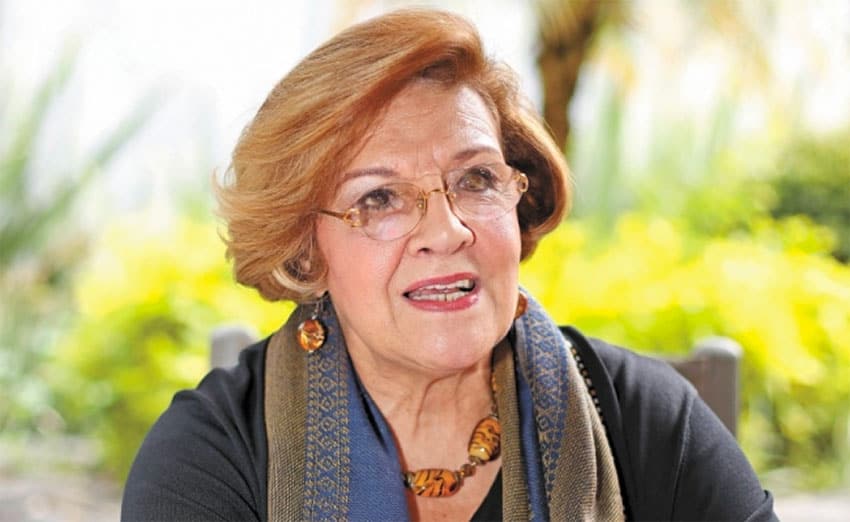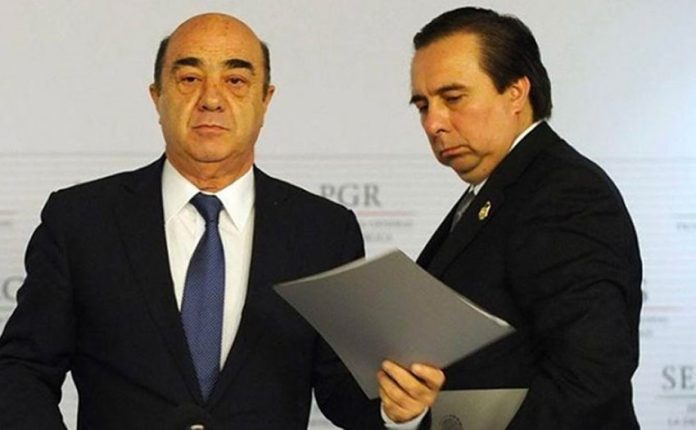The investigation into the disappearance of 43 students in Iguala, Guerrero, in 2014 dragged on for more than four years under the previous government, and continues to do so.
The president of the Inter-American Commission on Human Rights (IACHR) has expressed regret over the lack of progress made by the federal government, despite a commitment it has made to get to the bottom of the controversial and tragic case.
In an interview with the newspaper El Universal, Esmeralda Arosemena de Troitiño also said that all high-ranking officials who may have been involved in the disappearance of the students on September 26, 2014, or who may have obstructed the probe into the crime, must be investigated.
“The investigations haven’t advanced as quickly as we expected,” Arosemena said, although she added that it was “very encouraging” that President López Obrador met this month with the parents of the missing students, all of whom attended the Ayotzinapa Rural Teachers College in Guerrero.
That showed that the president was fulfilling his commitment to solve the case, the IACHR chief said.
However, the former judge of the Supreme Court of Panama said she had heard that some institutions – which she didn’t name – are not cooperating with the investigations.
Asked what the IACHR is demanding of the government, Arosemena responded that the commission wants “something concrete” from authorities by September 26 – the fifth anniversary of the students’ disappearance.
“[We want] something detailed from the investigation in order to find those responsible, but also the young men . . . I read in the news that there was already important information about where the students could be found, that [information] has to be acted on, it can’t be delayed, because the situation is coming up to five years,” she said.
Arosemena said that a fresh investigation into the events of September 2014 – the government said last week that a new probe into the case would be opened – must include interviews with army personnel stationed in Guerrero at the time.
According to the previous government’s “historical truth,” the students were intercepted by corrupt municipal police and handed over to the Guerreros Unidos crime gang who killed them and burned their bodies in a municipal dump.
However, the investigation carried out by the Enrique Peña Nieto-led government was widely criticized and many people suspect that the army played a role in the student’s disappearance. One theory is that the students’ bodies were burned in the incinerators of a Guerrero army base.

Arosemena also said that an investigation into high-ranking officials of the past government could be crucial to finding out the truth about what happened to the students.
The federal Attorney General’s Office has announced that it will investigate former attorney general Jesús Murillo Karam – who first announced the “historical truth” – as well as former Criminal Investigation Agency chief Tomás Zerón and former Ayotzinapa investigation chief José Aarón Pérez.
The IACHR president said that solving the Iguala case is important because it will bring “peace and tranquility to the entire population” of Mexico and enhance the standing of the country’s justice system.
If officials are found guilty of involvement in the student’s disappearance or obstructing justice they must be punished, Arosemena said.
She added that she was confident that the truth would be uncovered, explaining that she has seen evidence of some progress made by the government’s truth commission and that she personally knows Omar Gómez Trejo, the special prosecutor in charge of the reexamination of the case.
“. . . He participated in the GIEI [the Interdisciplinary Group of Independent Experts, which was formed by the IACHR to assist the previous government’s investigation]. That gives me confidence . . .” Arosemena said.
Gómez said last Wednesday that authorities are going to start the Ayotzinapa probe again, explaining that “a long list of politicians that bear different degrees of responsibility” would be investigated.
Arosemena said that the IACHR has a representative in Mexico who will closely monitor the progress of the investigation, adding that she was hopeful that the commission would have the opportunity to president evidence related to the case.
“We rejected the historical truth with scientific facts. However, they [the previous government] maintained that version [of events]. Now it’s another time, there are other circumstances, I hope that we will be listened to . . .”
Asked whether the release from prison of 77 people linked to the Iguala case represented a failure of Mexico’s justice system, Arosemena responded:
“The accusatory criminal system is not designed so that criminals leave [prison] laughing at their victims. What we need is for the system to work so that people who can provide information [about a crime] receive some kind of concession . . . It’s not about releasing them because their responsibility has to be determined but we need to find mechanisms, other than torture, to get that information.”
The United Nations human rights office said in a report last year that that were “solid grounds to believe that torture was committed against” 34 people arrested in connection with the disappearance of the students.
Gildardo López Astudillo, who was allegedly the Guerreros Unidos plaza chief in Iguala at the time of the students’ disappearance, other gang members and 24 municipal police officers suspected of involvement in the case were recently released from prison because judges ruled that the evidence against them was obtained by illegal means, including torture.
Source: El Universal (sp), Reuters (en)
